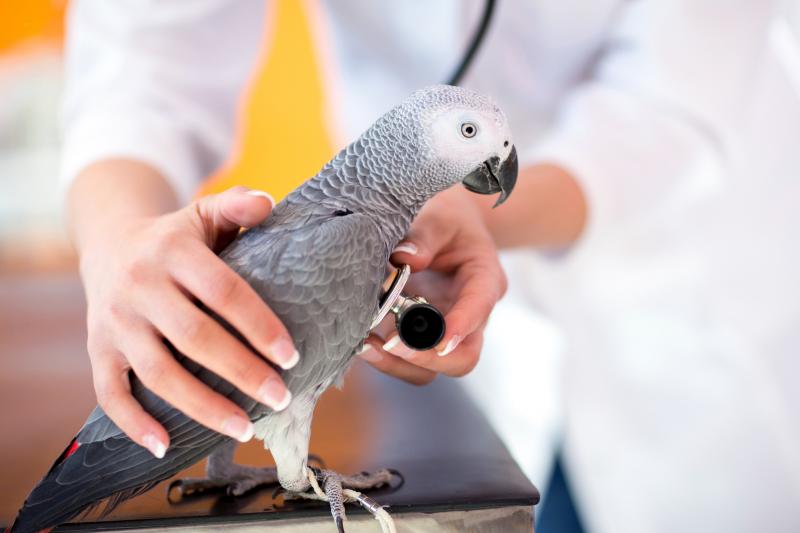Bird Illness Symptoms: How to Identify and Treat
Birds are wonderful creatures that can bring joy and happiness to our lives. However, they are prone to various illnesses that can be detrimental to their health. As bird owners, it is important to be aware of the symptoms of illness and know how to treat them to ensure our feathered friends remain healthy and happy. In this article, we will discuss the various symptoms of bird illness and provide tips on how to identify and treat them.
Understanding Bird Illness Symptoms
Birds can be affected by a range of illnesses, including viral, bacterial, and fungal infections. It is important to note that some illnesses are contagious and can be spread between birds, so it’s essential to take appropriate measures to prevent the spread of disease.
Respiratory Symptoms
Birds that are experiencing respiratory symptoms may display a range of symptoms, including:
- Sneezing
- Wheezing
- Coughing
- Runny nose or eyes
- Difficulty breathing
If you notice any of these symptoms in your bird, it’s important to seek veterinary attention immediately, as respiratory issues can quickly become serious.
Digestive Symptoms
Birds that are experiencing digestive symptoms may display the following symptoms:
- Regurgitation or vomiting
- Diarrhea or loose stools
- Loss of appetite
- Weight loss
If you notice any of these symptoms in your bird, it’s essential to take them to the veterinarian as soon as possible. Digestive issues can lead to dehydration and malnutrition, which can be life-threatening for birds.
Behavioral Symptoms
Birds that are experiencing behavioral symptoms may display the following symptoms:
- Lethargy or decreased activity levels
- Aggression or irritability
- Changes in vocalization or singing
- Changes in feather plucking or preening
Behavioral symptoms can be a sign that something is wrong with your bird, so it’s essential to take them to the veterinarian for a checkup.
Neurological Symptoms
Birds that are experiencing neurological symptoms may display the following symptoms:
- Seizures or convulsions
- Weakness or paralysis
- Head tilting or circling
- Loss of balance
If you notice any of these symptoms in your bird, it’s important to seek veterinary attention immediately, as neurological issues can quickly become serious.

Treating Bird Illnesses
If your bird is showing symptoms of illness, it’s important to seek veterinary attention immediately. A veterinarian can examine your bird, run diagnostic tests, and prescribe appropriate medication to treat the illness.
Medications
Depending on the type of illness your bird is experiencing, your veterinarian may prescribe one or more medications to help treat the illness. Some of the most common medications used to treat bird illnesses include:
- Antibiotics: Used to treat bacterial infections
- Antifungal medications: Used to treat fungal infections
- Antiviral medications: Used to treat viral infections
It’s important to follow your veterinarian’s instructions regarding medication dosages and frequency.
Home Care
In addition to medication, there are several things you can do at home to help care for your sick bird, including:
- Keeping them in a warm and quiet environment
- Providing them with fresh water and food
- Giving them plenty of rest
- Keeping their environment clean and free from contaminants
Conclusion
Bird illnesses can be challenging to identify and treat, but by knowing the symptoms and taking appropriate measures, you can help ensure your feathered friend remains healthy and happy. If you notice any symptoms of illness in your bird, seek veterinary attention immediately, as early intervention is critical to the success of treatment.
FAQs
- How can I prevent my bird from getting sick?
- Keeping your bird’s environment clean and free from contaminants.
- Can bird illnesses be contagious?
- Yes, some bird illnesses can be contagious and easily spread between birds.
- How often should I take my bird to the veterinarian for a checkup?
- It is recommended to take your bird to the veterinarian for a checkup at least once a year to ensure they are healthy and to catch any potential health issues early.
- Can I treat my bird’s illness at home without veterinary intervention?
- It is not recommended to attempt to treat your bird’s illness at home without veterinary guidance, as some illnesses can be serious and require specialized care.
- What are some common causes of bird illness?
- Common causes of bird illness include exposure to toxins, poor nutrition, stress, and bacterial, fungal, or viral infections.
In conclusion, bird illness symptoms can be tricky to identify, but it’s important to be aware of the signs and seek veterinary attention immediately if you notice any concerning symptoms. By following appropriate treatment and home care, you can help your feathered friend recover and stay healthy. Remember to prioritize your bird’s health and seek help from a qualified veterinarian if you have any concerns.
Read More:Pet Bird Care Guide: Tips for Keeping Your Feathered Friend Happy and Healthy




